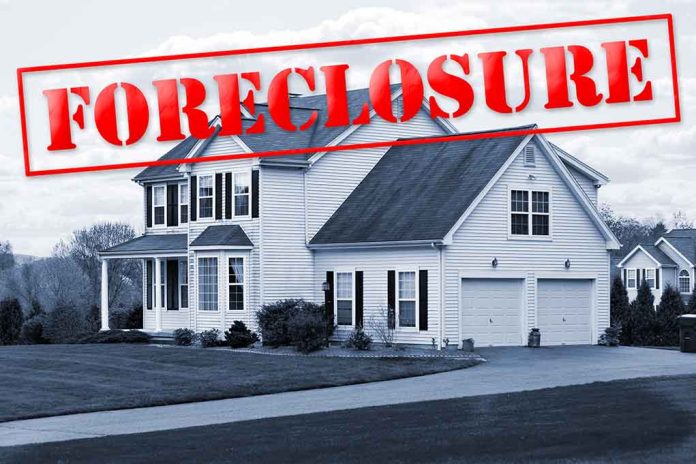
Don’t Get Swindled: Sound Advice For Buying Foreclosed Homes
(DailyDig.com) – Mortgage payments can be overwhelming. Some people have no choice but to default on their loans, especially if they lose their jobs. While banks don’t like it when borrowers skip payments, there isn’t much they can do when someone can’t afford to stay. They foreclose and then attempt to recoup the cost by reselling the home. Buying a foreclosed home can save much money on the cost of a new home, but how exactly does the process work?
First Step
The first step is to find foreclosed homes on the market. The Internet is a powerful tool that allows people to search for results in specific regions. Real estate agency databases and bank websites are a great place to start. Foreclosure.com is another excellent source.
There are also offline places to search for forever closure sales. Try visiting bank offices or looking in local newspapers in the classifieds section.
Buying a Foreclosed Home
Found a house you like? Make arrangements to check it out. It is important to note that the exact procedure may vary slightly depending on the vendor and your state. Even the type of property you plan to buy, and your current credit situation may play a role.
Government-Owned Properties
Government-owned homes often result in a buyer defaulting on a federal mortgage loan from the Department of Veterans Affairs (VA) or the Federal Housing Administration (FHA). When these homes go into foreclosure, the government repossesses them and sells them through brokers who work for the agency that initially the property.
To buy a government-owned foreclosure, one must speak directly with the broker. Individuals can visit the US Department of Housing and Urban Development (HUD) to find available properties from these agencies.
Sheriff Auctions
These sales occur after the lender has already notified the borrower and allowed the borrower a grace period to catch up on missed payments. Sheriff’s auctions also enable lenders quickly recover unpaid loan money. Local law enforcement agencies often hold these auctions on the steps of the local courthouse.
The auction takes place on a publicly announced date and time. Prospective buyers can find these auctions online by searching sheriff’s sale listings or local newspapers. During the auction, houses are sold to the highest bidder.
Pre-Foreclosure
A property into foreclosure after the lender notifies the borrower that it has missed payments and has not received a loan. However, the house is not being offered for sale at auction at this time. The borrower has the opportunity to sell the home to avoid foreclosure, which negatively affects their credit.
These properties are often listed on campus in city and county buildings. Prospective buyers can also find them at Foreclosure.com and other online sources.
Benefits and Risks
There are many benefits to buying a foreclosed home, including getting offers well below market value. Depending on the foreclosure stage in which the house is, the buyer could save even more money. However, there are also many disadvantages.
Note the “as is” condition of the foreclosed homes. As any used car buyer will tell you, “as is” can mean cheaper, but it can also mean “worse.” Saving $20,000 is not worth it if you spend $50,000 on repairs. The buyer will be 100% responsible for needed repairs, with absolutely no assistance from the seller.
A foreclosed home can also be slower to settlement, sometimes taking several months. Unfortunately, some places may also have baggage, such as warranties and back taxes, that must be paid before one can take possession.
Buying a home someone else is about to lose can be difficult, but the benefits are undeniable. Someone looking for a modest home with little or no down payment is more likely to purchase a perfect home at a lower cost through pre-foreclosure.
Copyright 2022, DailyDig.com













